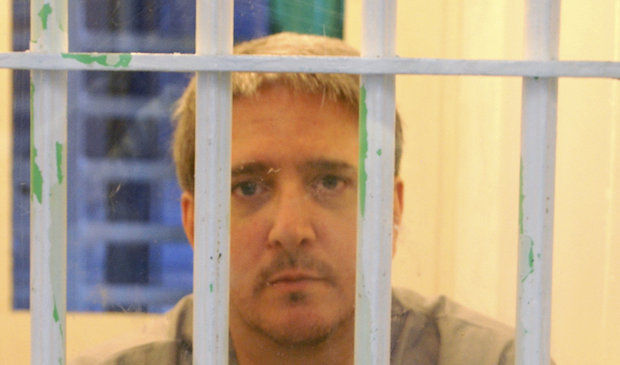The Washington Post and other news outlets are reporting that Oklahoma Governor Mary Fallin has temporarily halted the execution of Richard Glossip, the second of six executions scheduled over five days, beginning with Kelly Gissendaner’s execution early this morning in Georgia.
Glossip’s execution had been scheduled for 3 p.m. He had asked the U.S. Supreme Court to halt the execution, arguing that more time was needed to allow officials to review new evidence in the case, but the justices rejected his request shortly before his lethal injection was intended to begin.
More than an hour later, Fallin issued an unexpected stay, ordering that the execution be postponed until Nov. 6. In her executive order declaring the stay, she said it was due to the state Department of Corrections receiving a drug they were unsure could be used as part of its lethal injection protocol.
Fallin has issued a 37-day stay of execution.
CNN looks at the controversy surrounding the three-drug combination Oklahoma was to use in Glossip’s execution:
One-third of that cocktail is a powerful sedative, often used for anesthesia, called midazolam. It’s meant to cause unconsciousness, but opponents say it doesn’t induce the deep unconsciousness necessary to prevent prisoners from experiencing the painful effects of the two other drugs in the protocol.
The drug made headlines in April 2014, when convicted murderer Clayton Lockett writhed and moaned on a gurney for 43 minutes before dying. Though the execution was widely labeled botched, a state investigation said the insertion of intravenous lines — not the drugs — was responsible for problems with the execution.
There have also been questions raised with regard to new evidence and criticism of the interrogation of Justin Sneed, whom Glossip was convicted of hiring to kill his boss; Sneed has been sentenced to life without parole (similar to Gregory Owen, who killed Gissendaner’s husband for her and was sentenced to life in prison).
Protests of Glossip’s execution have come from celebrities, activists and the Catholic church:
Pope Francis, who asked Georgia to spare the life of Kelly Gissendaner (it did not; she was executed Tuesday), asked Archbishop Carlo Maria Vigano to press Gov. Mary Fallin to stop Glossip’s execution.
“I believe that a commutation of Mr. Glossip’s sentence would give clearer witness to the value and dignity of every person’s life, and would contribute to a society more cognizant of the mercy that God has bestowed upon us all,” Vigano wrote on behalf of the Pope earlier this month.

